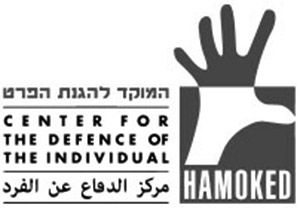Despite the geographic divide, the West Bank and Gaza Strip constitute a single integral unit. Palestinians living in these two parts of the OPT share a single national identity, a language and a history. Family ties, social organization, the health care system – all these, and more, cut across the lines that physically separate between the West Bank and the Gaza Strip. Israel itself has recognize...d the unity of the two parts of the OPT, and it has been enshrined in the agreements between Israel and the Palestinian Authority.
However, since the outbreak of the second intifada, and more so since the 2005 implementation of the disengagement plan and Israel’s pronouncement of Gaza as a “hostile entity” in September 2007, following the Hamas take over, Israel has been implementing a policy aimed at isolating the Gaza Strip and cutting it off completely from the West Bank. As part of this policy, Israel imposes severe restrictions on movement to and from the Gaza Strip, splitting up families and separating between spouses and between parents and their children in the process. Palestinian travel between the two parts of the OPT has been drastically reduced and permits for visits are given only in “exceptional humanitarian” cases according to narrow, stringent criteria. Israel divides residents of the West Bank and Gaza into two entirely separate groups, based on their registered address in the Israeli-managed population registry. The military sees registration in either the West Bank or Gaza as a type of national status, and relocating from one part of the OPT to another is construed in terms of immigration policy – and it is a one-way policy: The military allows Palestinians to relocate only from the West Bank to Gaza, after receiving their pledge to permanently “settle” in Gaza without any intention of returning to the West Bank. Applications for relocation from Gaza to the West Bank, on the other hand, are automatically rejected.
Moreover, Palestinians registered with a Gaza address who actually live in the West Bank are treated by Israel as illegal aliens in their own homes, unless they have a special military permit allowing them to live in the West Bank. People who had moved years ago from Gaza to the West Bank, making their home there, often found themselves detained at checkpoints, thrown in jail and forcibly removed to Gaza. Following a series of High Court petitions filed by HaMoked between 2008 and 2010, Israel undertook to no longer expel to Gaza people who moved from there to the West Bank before 2005. Israel, however, still persists in withholding approval for the change of address in the population registry that would reflect where these persons actually live, and continues to consider them “illegal aliens” in the West Bank. Israel’s objection to correcting the registered addresses causes serious disruptions in the daily lives of these individuals, to the point of making them prisoners in their own homes.
Israel’s Gaza-West Bank separation policy seriously impacts basic human rights enshrined in international humanitarian law, international human rights law and Israeli constitutional law. Primarily affected is the right of every person to move freely within their country of residence and freely choose where to live there. The violation of this right often leads to violations of the rights to family life, health, education, a livelihood and freedom of occupation. When people are denied the right of freedom of movement within their own country, their social and cultural lives are harmed, and their freedom of choice and human dignity are violated.
العربية
HE



